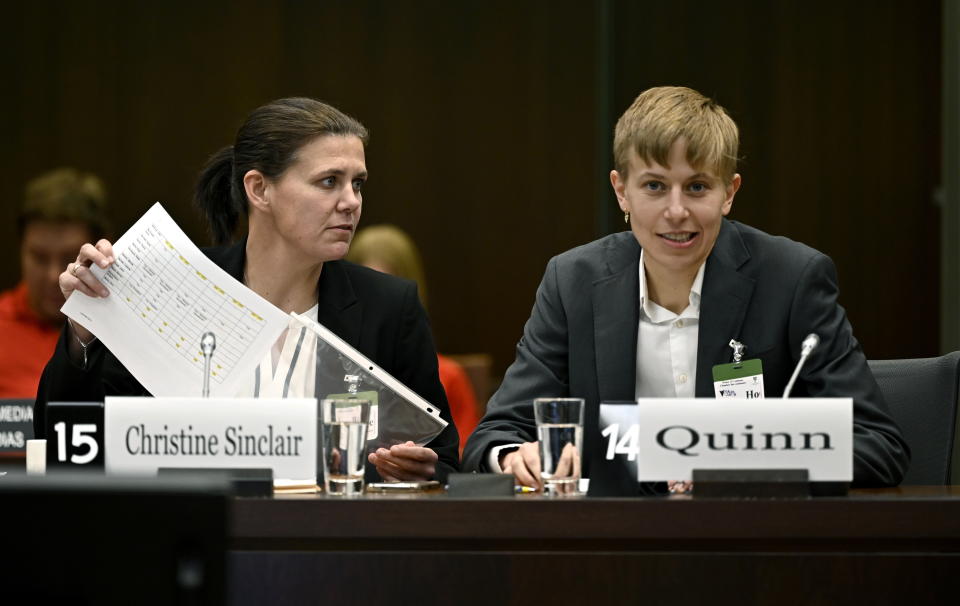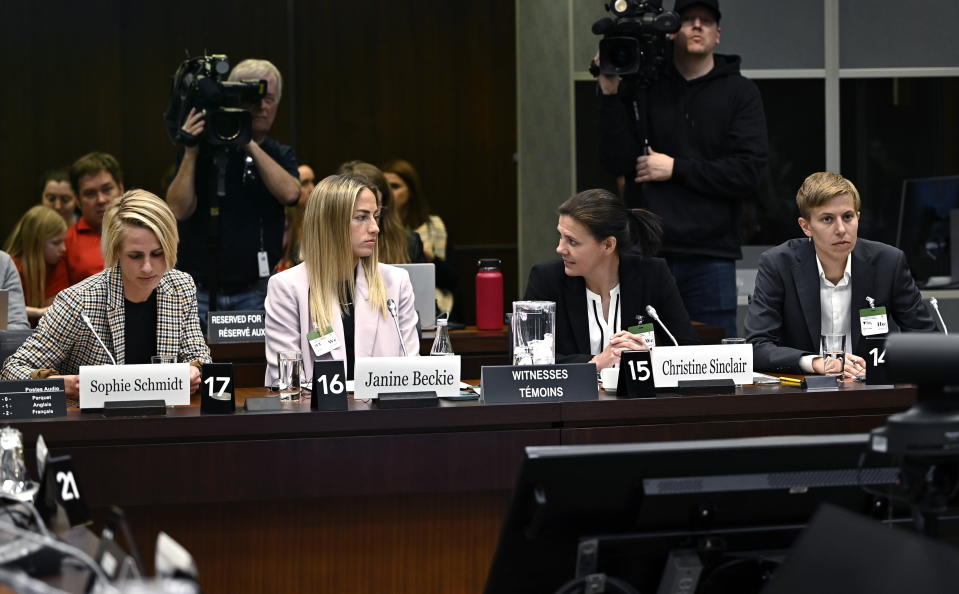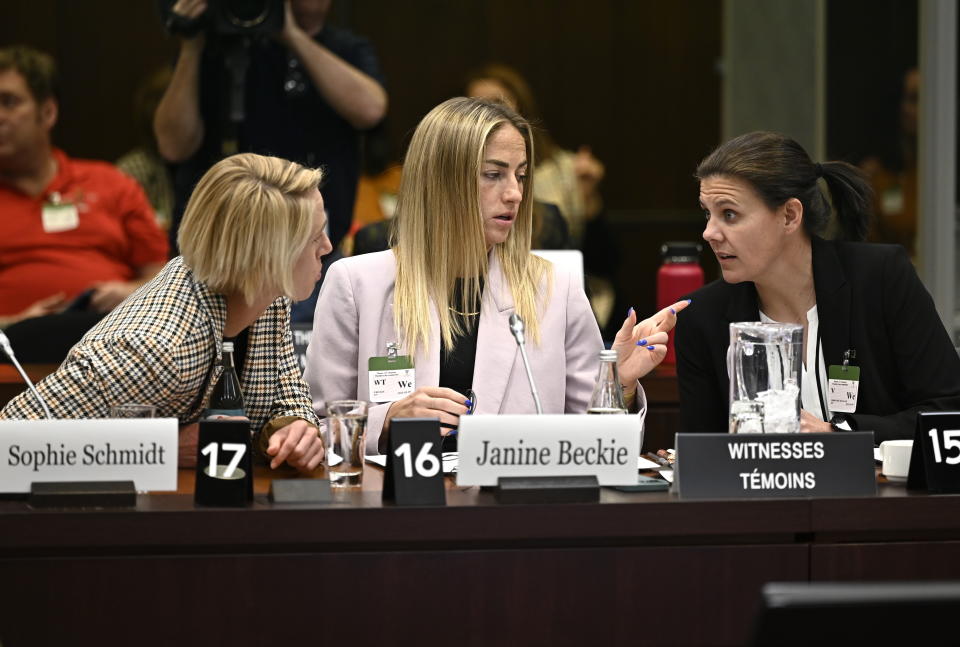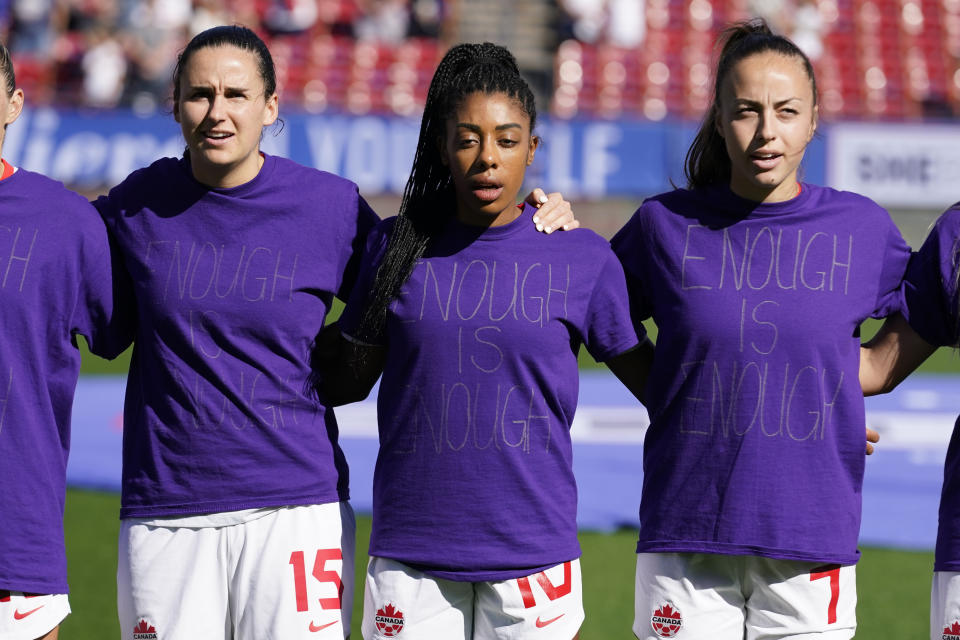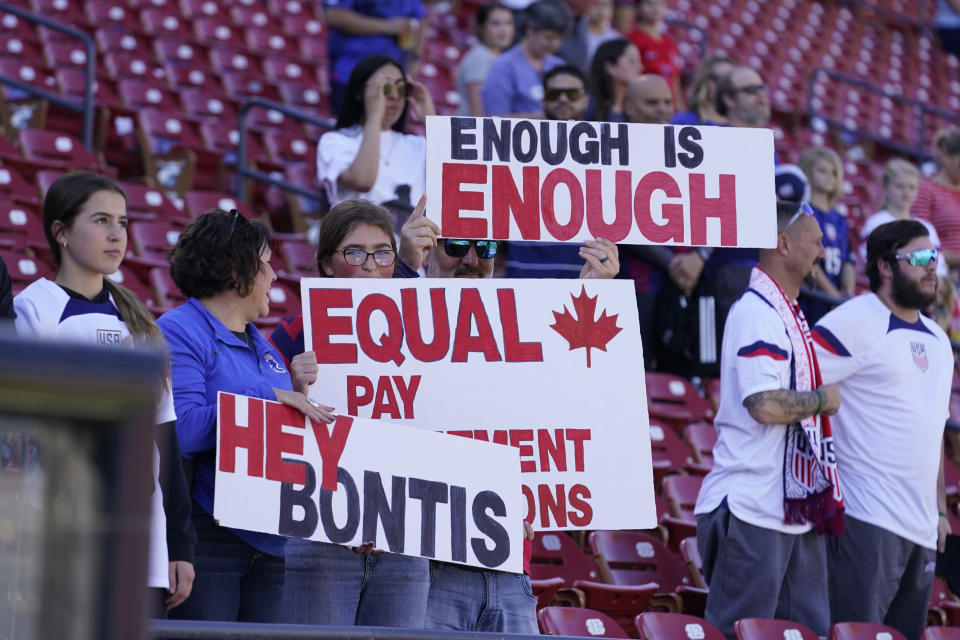Canadian women soccer players testify to distrust of leaders
- Oops!Something went wrong.Please try again later.
- Oops!Something went wrong.Please try again later.
- Oops!Something went wrong.Please try again later.
Canadian women's soccer players testified during a government hearing on Thursday that they don't trust the sport's national governing body to negotiate a fair labor agreement, remarks made after management went public with proposals for equal pay and division of prize money.
“It is time to get a deal done,” Canada Soccer general secretary Earl Cochrane said in a statement accompanying proposals the federation said were made to the women's and men's national teams last June. “We’ve been negotiating in good faith and want to get to a resolution with our national teams.
"In order to get there, we need both of our national teams to agree," he added. "Our women deserve to be paid equally and they deserve the financial certainty going into the 2023 FIFA Women’s World Cup.”
Canada's women, the reigning Olympic soccer champions, have demanded equal pay, following the lead of their American counterparts who last year reached a landmark collective bargaining agreement with the U.S. Soccer Federation.
“As a team, we do not trust Canada Soccer to be open and honest as we continue to negotiate for not only fair and equitable compensation and treatment, but for the future of our program,” Canada captain Christine Sinclair said during testimony before the House of Commons Standing Committee on Canadian Heritage in Ottawa,
Janine Beckie, another of the four players at the hearing, said the team felt “quite disrespected” by Canada Soccer’s annoucement and claimed included terms not previously communicated to players.
The women’s previous collective bargaining agreement expired at the end of 2021 and the men are seeking their first formal labor contract. Players from both teams have asked that Canada Soccer open its books and detail a marketing agreement with Canadian Soccer Business.
The men boycotted an exhibition match in June ahead of the team's first World Cup appearance in 36 years.
Decrying the lack of movement on an agreement, the women announced last month they planned to sit out the SheBelieves Cup in the United States, and Canada Soccer responded by saying the planned action amounted to an illegal strike.
The team went on to play under protest. Players wore T-shirts that said “Enough is Enough” during the national anthem. At the opening match against the U.S., both teams gathered in a circle on the field before kickoff in a show of solidarity.
The women's team claimed it had not been paid for 2022 and funding cuts were drastically limiting the preparation for the World Cup this summer in Australia and New Zealand.
Last week, Canada Soccer announced it had reached an interim agreement to pay the women retroactively for appearances in 2022. The move came after Nick Bontis resigned as federation president, acknowledging change was needed to achieve labor peace.
Sinclair recalled interaction with Bontis last year during contract negotiations.
“I was tasked with outlining our compensation, asked on behalf of the women’s national team. The president of Canada Soccer listened to what I had to say. And then later in the meeting referred back to it as, quote, 'What was it Christine was bitching about?'” Sinclair said during her testimony. ”To me this spoke volumes about the lack of respect Canada Soccer has for its women’s national team."
Sinclair said interim federation president Charmaine Crooks has not reached out to the players.
Canada Soccer said Thursday it had spent about $37.4 million from 2012-19 on staffing and program costs for its men's team. Over the same period, the federation said it spent just over $37 million for the women.
The women's team played in a pair of World Cups and two Olympics while the men qualified for their first World Cup since 1986. As a result, the women played more meaningful matches and required more support.
Canada Soccer proposed setting aside 40% of the World Cup prize money the men earned last year and as much as 75% of the women's winnings at this summer's World Cup for a pool to be split among players. Canada Soccer earned $9 million from FIFA after the men's team went 0-3 and failed to advance from the group stage. The women will likely earn less — FIFA awarded U.S. Soccer $4 million for winning the 2019 tournament and this year's prize money has not been announced.
Canada Soccer acknowledged its proposal does not mean equal distribution of dollars because the teams have different competitive structures and circumstances.
“Pay equity is actually just a little piece of the puzzle," Sinclair said. "It’s about equal treatment. It’s about equal opportunities, equal resources, and honestly, until that happens, we’re going to be at a stalemate.”
___
More AP soccer: https://apnews.com/hub/soccer and https://twitter.com/AP_Sports
